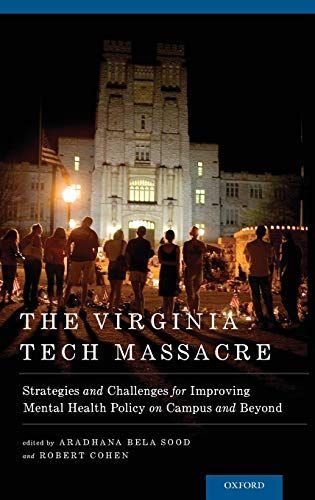
The Virginia Tech Massacre Strategies and Challenges for Improving Mental Health Policy on Campus and Beyond
In the wake of the April 2006 Virginia Tech shootings, governor Timothy Kaine appointed an independent panel to investigate the incident and to recommend potential policy changes that might prevent such a tragedy from occurring again. The incident itself and the work of the panel mobilized the entire nation to examine many aspects of the tragedy, most centrally university mental health systems. Certain aspects of the case raised issues that were not addressed by the resulting report, such as the role of the college mental health system in the lives of young adults, the complexity of identifying the mental health needs of students, and the shortcomings of mental health delivery systems within colleges as well the larger community. The Virginia Tech Massacre is based on the experience and unique perspective of Dr. Aradhana Bela Sood, a panel member appointed to the special independent review committee which was asked to consult specifically on the mental health system implications of the VA Tech shooting. This book discloses Sood's personal experience as a child psychiatrist and panel member, and her role in shaping the final report. Sood, along with co-editor Dr. Robert Cohen, who has been involved in studying and reforming mental health policy for more than 40 years, and carefully selected expert contributors take readers on a journey examining the mental health vulnerabilities of youth transitioning to adulthood, the limitations of existing warning tools for violence, and local, regional, and national gaps in mental health service delivery across the United States. This book offers examples of effective mental health services, policies, and strategies, and it provides concrete and pragmatic recommendations for how to begin overhauling the delivery of mental health services. The Virginia Tech Massacre is topical and timely, given the widespread interface between violence in the public arena and mental health issues. It will be a critical resource to mental health professionals, policymakers and legislators, state and local government officials, higher education personnel, and social workers and others in the human service fields. It will also be of interest to those concerned about gun violence and mental health and students in psychiatry, psychology, social work, and public health.